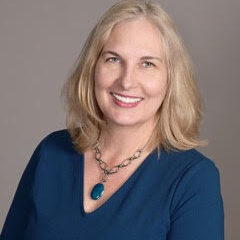When I talk with my clients, I ask a lot of seemingly nosy questions about their finances. It’s not that I want to pry; it’s just that one’s financial situation needs to be honestly assessed when considering a career change.
Common questions asked are:
-
How much debt do you have?
-
How much do you need to make to pay your bills?
-
What is your current income?
-
How are you doing with savings and investments?
-
Do you have a financial advisor?
-
What kind financial obligations do you have?
The information obtained is of course completely confidential and no judgments are made. As a career transition can involve a temporary or permanent reduction in income, it is essential to know what the minimum salary requirement is for the short term and what’s desired for the long term. Income loss can result from pursuing additional training, starting in an entry-level position, building a consulting or freelance business, or switching to a new field. For those who have financial flexibility, it goes without saying that more doors will be open and there’s less stress from having to make a certain salary right away. A career change can also lead to greater income. Dr. Michael McLaughlin, a former plastic surgeon, transitioned after 4 years of practice into medical communications. He’s now the owner of a successful medical communications company. In his book, “Do You Feel Like You Wasted All That Training?” Dr. McLaughlin describes how he never dreamed he would exceed his earning potential as a plastic hand surgeon.
Take the Financial Health Pop Quiz to gauge your financial readiness for a career change.
1. I have enough savings to cover my expenses for at least 6 months.
True
False
2. My spouse/partner and I are on the same page when it comes to spending and saving money.
True
False
3. I have a budget and keep to it.
True
False
4. My school debt is paid off or is at a manageable level.
True
False
5. I know what kind of funds, stocks, and products my money is invested in and their rate of return.
True
False
6. I am careful about spending money on non-necessities.
True
False
7. My credit cards are paid off in full every month.
True
False
8. I have a healthy relationship with money. It does not control me and I do not use it for control.
True
False
9. My extended family, relatives, friends, etc. do not expect me to support them or lend them money. If I do this, it’s my choice.
True
False
10. I have an idea at what age I want to retire and how much money I will need.
True
False
11. I am being paid what I am worth at my job.
True
False
12. I know the minimum income I need if I were to change jobs.
True
False
How did you do on the Financial Health Pop Quiz? If you answered “True” to most of the questions, that’s great, you have a good relationship with money. This reality affords you greater freedom to do work you truly enjoy. If you answered “False” to 3 or more questions, you may benefit from some further attention in this area.
Physicians unfortunately are at risk for getting in a big “financial wedgie.” Medical school debt is often $200 – $300K. Delayed gratification from years of training may result in a sudden lifestyle change to the big house, luxury cars, expensive vacations, and pressure to keep up with the “Dr. Joneses.” In addition, the lack of money management or business training in residency can lead to more debt and even bankruptcy.
A situation I see not infrequently is the physician who is spending a fair amount of money taking care of extended family. This type of responsibility can be exactly what he or she wants to do and that’s fine. But all too often I hear about the sibling who never got it together, or the parents who didn’t plan well for retirement, and the “doctor” in the family is expected to come to the rescue. Not wanting to appear selfish or uncaring, the physician gets stuck in an obligation that creates resentment and dependency.
While there are many healthy and appropriate ways physicians and others do give to their extended families; it is important to distinguish when financial giving is truly helping and when it is enabling. One need not feel guilty about establishing boundaries.
If your financial picture isn’t as rosy as you’d like, don’t beat yourself up or despair. No matter how bad things are, improvement can be made. Yes, dealing with money can feel overwhelming, or hopeless, or be downright boring. But the problems only worsen when ignored. One of my coaching teachers wisely observed, “We are trapped by what we avoid.” Take one proactive step today with your finances and start creating an ideal foundation for choosing work you enjoy.
If you would like some resources for managing your money, a place to start is with personal finance guru, Suze Orman. She has a number of books, audio CD’s and DVD’s on a wide range of financial topics.
For a review of the top personal finance software programs to track your spending, click here.
Lastly, if you are looking for a financial advisor, check out a previous blog, Choosing a Financial Advisor, Tips to Avoid Costly Mistakes.
You work hard for your money. Make sure it’s working well for you.
Latest Posts
Find what you're looking for:
Popular Categories:
Career Change | Career Enhancement | Job Search | Personal Development
























